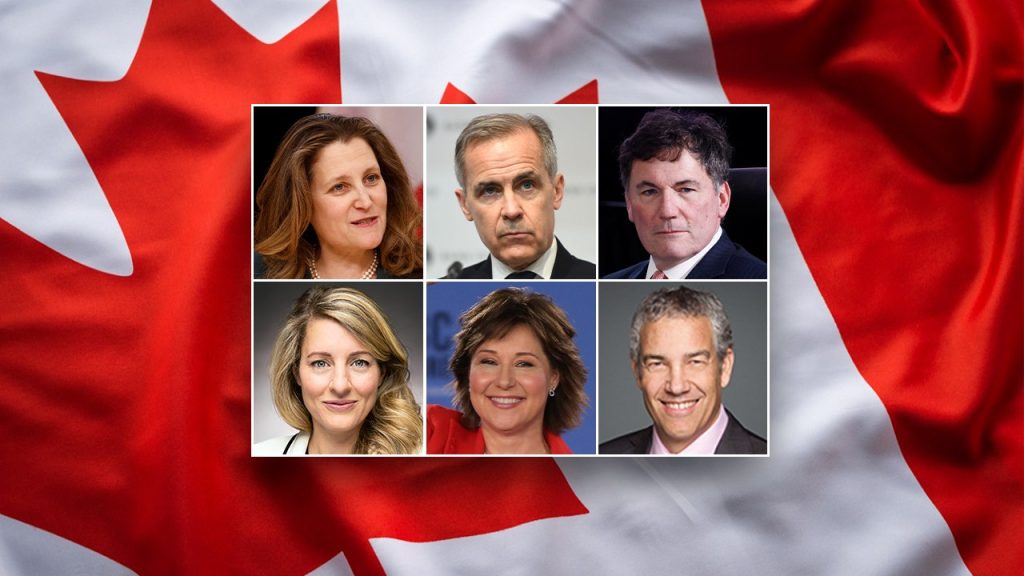The Unexpected Resignation and the Scramble for Succession
Justin Trudeau’s sudden resignation as Prime Minister of Canada has sent shockwaves through the Liberal Party and the nation. Facing dwindling approval ratings and an impending election against a resurgent Conservative Party, Trudeau’s departure has triggered a leadership contest with significant implications for the country’s future. The next Liberal leader will inherit a complex set of challenges, including a cost-of-living crisis, a strained immigration system, and the looming economic pressures exerted by the recently elected US President, Donald Trump. The October election deadline adds urgency to the Liberal Party’s need to select a strong and capable successor who can navigate these turbulent waters and present a compelling vision for Canada. The party’s internal democratic process will determine who takes the reins, with a national leadership contest set to unfold in the coming months.
The Frontrunners and Their Potential Strengths and Weaknesses
Several prominent figures have emerged as potential successors to Trudeau, each with their own unique set of qualifications and baggage. Chrystia Freeland, the former Finance Minister and Deputy Prime Minister, is considered a leading contender. Her recent resignation from Trudeau’s cabinet, citing disagreements over economic policies, could be perceived as both a strength and a weakness. While it signals a willingness to challenge the status quo, it also raises questions about her alignment with the party’s core values. Furthermore, her strained relationship with President Trump could pose a significant obstacle in managing crucial bilateral relations.
Mark Carney, the former Governor of the Bank of Canada and the Bank of England, is another prominent name being floated as a potential leader. His extensive experience in economics and finance, coupled with his international reputation, could provide much-needed stability during uncertain economic times. However, his lack of political experience and perceived closeness to Trudeau might be seen as drawbacks by some within the party who seek a fresh start.
Dominic LeBlanc, the current Finance Minister, enjoys a close personal relationship with Trudeau, having served as a trusted advisor and "fixer" within the government. His political experience and communication skills are undeniable assets, but his close ties to the outgoing Prime Minister could be a liability in an election where voters may desire a change in direction.
Emerging Contenders and Outsider Prospects
Mélanie Joly, the Foreign Affairs Minister, has gained valuable experience navigating complex international issues, including the Russian invasion of Ukraine and Canada’s relationship with China. Her diplomatic skills and rising profile within the Liberal Party make her a viable candidate, though her relative lack of experience in domestic policy could be a concern for some. Christy Clark, the former Premier of British Columbia, presents an interesting outsider option, potentially appealing to those seeking a break from the Trudeau era. Her experience as a provincial leader and her outspoken nature could be both assets and liabilities in a national leadership contest.
Frank Baylis, a former MP and businessman, has formally declared his candidacy, emphasizing his practical experience and ability to negotiate deals, particularly in the context of US-Canada relations. His business background and focus on non-political expertise could resonate with voters disillusioned with traditional politicians.
The Challenges Ahead and the Stakes for Canada
The next Liberal leader will face a formidable task in uniting a party grappling with internal divisions and declining public support. The upcoming election, with its looming deadline, will require a decisive and effective campaign strategy to counter the growing momentum of the Conservative Party. Beyond the immediate political challenges, the next Prime Minister will need to address the pressing economic issues facing Canadians, including the rising cost of living and the potential economic fallout from President Trump’s protectionist policies. The immigration crisis also demands urgent attention, requiring a comprehensive and humane approach to border security and integration. The stakes are high for Canada, as the next leader will not only shape the future of the Liberal Party but also influence the country’s trajectory on the global stage. The leadership contest will be a crucial test of the party’s ability to adapt and renew itself in the face of adversity.
The Impact of Trump and the US-Canada Relationship
The election of Donald Trump as US President has introduced a new level of complexity to the Canada-US relationship. His protectionist trade policies and aggressive rhetoric towards Canada have created significant economic and political challenges for the Trudeau government. The next Canadian Prime Minister will need to navigate this delicate relationship with skill and diplomacy, balancing the need to protect Canadian interests with the importance of maintaining strong ties with its largest trading partner. The ability to effectively engage with President Trump and his administration will be a key factor in determining the success of the next Liberal leader.
The Search for a New Vision and the Future of the Liberal Party
The Liberal Party is at a crossroads, seeking a new leader who can articulate a compelling vision for the future of Canada. The leadership contest will provide an opportunity for the party to redefine itself and reconnect with voters who may have become disillusioned with the Trudeau government. The next leader must address the concerns of Canadians, offering concrete solutions to the challenges they face, while also inspiring hope and optimism for the future. The outcome of this contest will not only determine the next Prime Minister but will also shape the direction of the Liberal Party for years to come.


